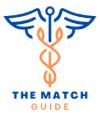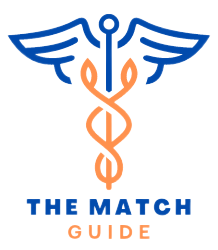What is a Clinical Observership and How to Secure an Observership as an IMG?
What is a Clinical Observership and How to Secure an Observership as an IMG?
Clinical observerships are a type of educational experience where medical graduates can observe and gain exposure to the day-to-day practice of a particular specialty in a healthcare setting. These observerships are typically unpaid, short-term experiences that are designed to provide graduates with a better understanding of the specialty and the healthcare system in which it operates.
Observerships are a great way for International Medical Graduates (IMGs) to gain hands-on experience and learn from experienced physicians. They can provide a valuable insight into the inner workings of a specialty and help to solidify a graduate’s career choice. Additionally, observerships can provide graduates the opportunity to network with physicians and residency program directors, which can be beneficial when applying for residency positions.
Usually, applicants need to reach out to hospitals and clinics directly and inquire about observership opportunities. There are some commercial companies that charge a fee for such placements. You may opt for those if you are running very tight on time or have tried your best, but there is no response from hospitals/clinics.
For IMGs, observerships can be very difficult to secure, but every year thousands of international graduates complete their rotations in the US. Here are a few steps that you can take to increase the chances of securing an observership:
Research: Research the specialty and healthcare setting (hospital or clinic) in which you are interested. This will help you to identify potential observership opportunities and to understand what is required to secure an observership. You can review various online resources such as AMA, VirturioMedEd, and various others to get a comprehensive list. We have also compiled a list here.
Networking: Network with physicians and residency program directors. This can be done through online forums, professional associations, and attending medical conferences.
Tailor your application: Tailor your CV, personal statement and cover letter to the specific observership and specialty you are applying for.
Be persistent: Follow up with the program coordinators and inquire about the status of your application. Stay patient and always remain professional and don’t sound desperate.
In conclusion, observerships are a great way for medical students and IMGs to gain hands-on experience and learn from experienced physicians. They can provide a valuable insight into the inner workings of a specialty and help to solidify a graduate’s career choice. It may take a lot of effort to get an observership, but with research, networking, tailoring the application and persistence, it is possible to secure an observership that aligns with your career goals.
- Cricket Run Rate
- Cricket Bating Tips
- Teen Patti Go
- Discover A World Of Possibilities With Gamdom India's Online Casino
- Teen Patti Joy
- Betln Exchange
- Betline Exchange
- Skyexchange.com Apk
- Sky Exchange App
- Tiger Exchange 247.com
- Hindi News Cricket
- Cricket News Today In Hindi
- Today Cricket News Hindi
- Hindi Cricket News
- Cricket In Hindi


